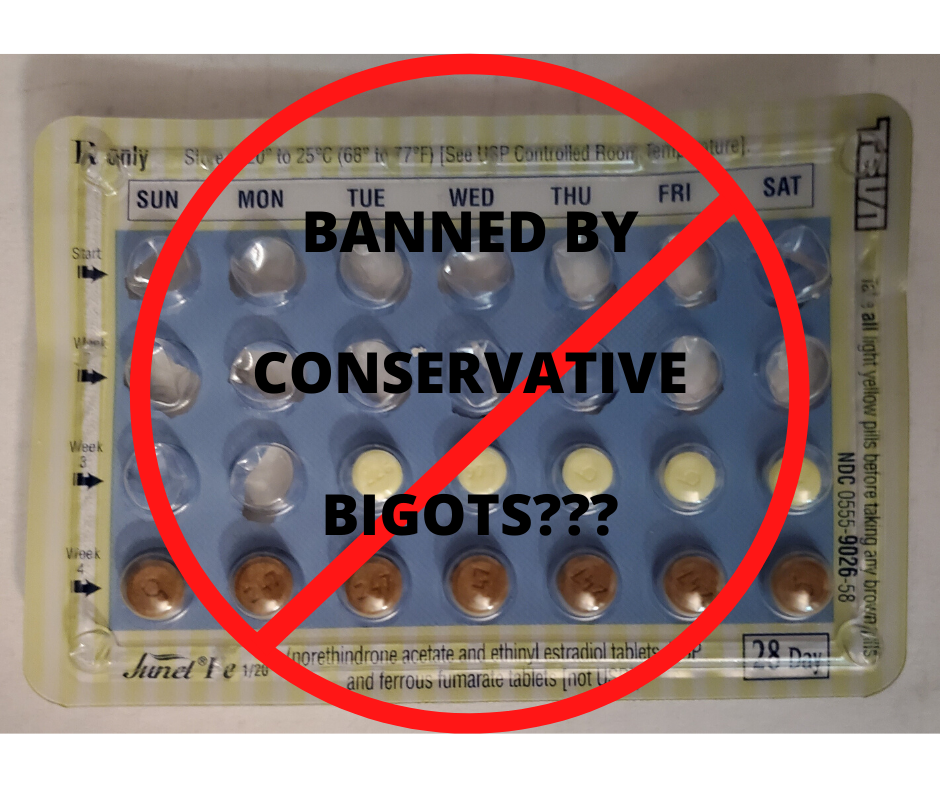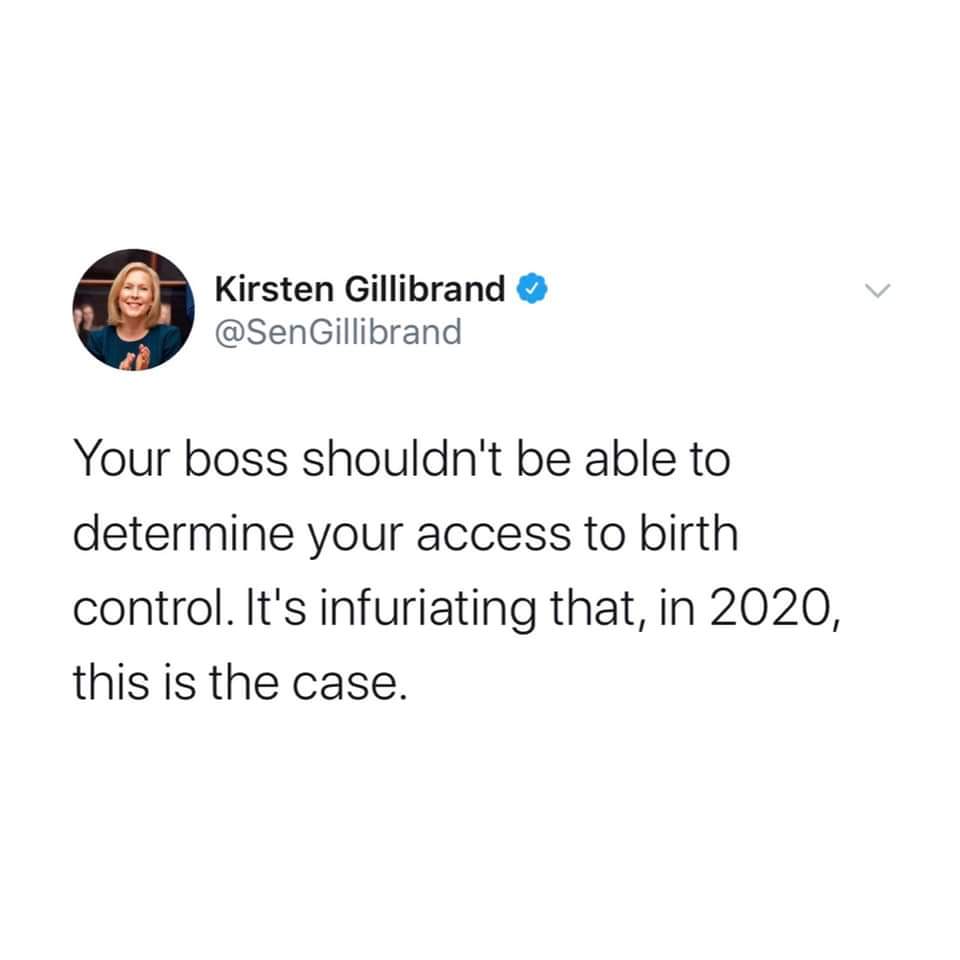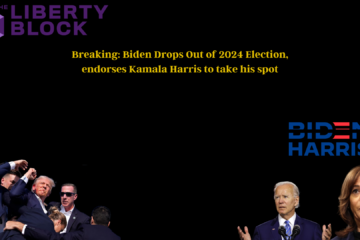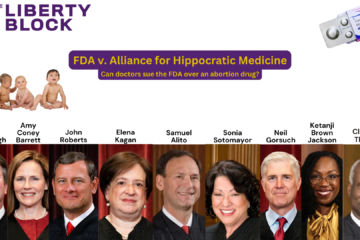If you’ve recently consumed news from any publication other than the most right-wing outlets, you may likely believe that the Supreme Court just issued a decision stating that no woman can use birth control ever again. The Supreme Court did recently issue a decision concerning birth control, though I view the case in a much different light than many others seem to view it.
Before we delve into the specific case and its ramifications, we must first ask ourselves a few basic questions: Who owns our bodies? Do each of us own our own bodies or do politicians? Should we be able to engage in any consensual and non-violent transaction with any other consenting adult? If politicians make a consensual act into a crime, would we support and obey the law? If interracial sex or buying alcohol (again) became a crime, would you oppose those laws or would you remain a ‘law-abiding citizen’? Should employers and employees be able to negotiate their own consensual contracts or should politicians determine their conditions of employment? Should the economy be based on the free exchange of goods and services between consenting adults or should it be centrally planned by the folks in Washington?
Keep those questions—the questions of self-ownership, freedom, and autonomy—in mind throughout this article.
‘Little Sisters of the Poor, et al. v. Pennsylvania’
Obamacare, officially titled The Affordable Care Act (ACA), gave the federal government tremendous control over not only private health care businesses, but also over all private employers in the US that have more than 50 employees. One of the many mandates that this Democrat bill created was that every employer must provide health insurance that covers birth control (among other services) at no cost to their employees. Of course, before the mandate, birth control was just one of the many compensation mechanisms that employers and employees would use to attract workers, and it was factored into the compensation and benefits package. Since the ACA passed, it is still factored into the compensation package, but there is less choice and flexibility for workers when seeking employment. Employers are forced by the law to pay for insurance plans that cover birth control with no out of pocket cost to their employees, regardless of whether the employee or employer so desires.

In 2016, seven religious institutions who refused to provide birth control for their employees sued the State Government of Pennsylvania, asserting that their Christian faith prohibited them from providing their employees with contraceptives. The plaintiffs invoked the First Amendment, which is supposed to protect the natural right to freedom of religion. This case was a consolidation of two appeals from the injunctions handed down by the United States Court of Appeals for the Third Circuit. The case was ultimately heard by the Supreme Court in May of 2020 and it issued a decision on Wednesday, July 8th. Seven of the nine justices agreed with the Trump Administration that religious institutions should not be forced at gunpoint to provide their employees with birth control.
Joined by Sotomayor, Justice Ginsburg disagreed with the ruling, writing that “…Destructive of the Women’s Health Amendment, this court leaves women workers to fend for themselves…”
My comment: If needing to purchase products and services that you desire is considered “fending for yourself”, then yes, women workers and everyone should fend for themselves. Especially if the alternative is the government stealing from others to provide for you or forcing others to pay for you with the rule of law (the threat of using force against your employer to take their money). I must “fend for myself” when it comes to buying a car, a house, firearms, ammunition, food, water, finding a job, finding a girlfriend, etc. Additionally, even if employers are forced to provide workers with a given benefit, they would naturally decrease the total compensation to make up for the cost of the benefit. Contrary to what leftists believe, money does not grow on trees; business owners have to pay their bills, too.
The Religious Freedom Restoration Act says that “the government shall not substantially burden a person’s exercise of religion, except in cases in which the government has a compelling interest.” The last part leaves the entire act open to interpretation by politicians and judges, rendering the entire federal law meaningless, though. Note that the “…compelling interest…” phrase was initially created by courts, not legislators. Some may also wonder how that Act adds to what is seemingly explicit in the First Amendment.
We do not understand the source of authority for any of these types of laws that prohibit consensual transactions between two adults. Government can use violence to violate people, but they cannot morally prohibit consent. A person consents to his employment contract when he signs the employment contract. If they didn’t consent to all of the employment conditions, they would not sign the contract. How does it make sense to believe that every single human in the US “inherently signs the social contract to accept and obey all laws past, present, and future” simply by being born in the US, while also believing that these same individuals who actively seek work, apply for a job, interview, read the specific employment contract, and sign their agreement to the employment conditions, then need politicians to step in and protect them from the very specific contract that they voluntarily signed?
The Supreme Court simply affirmed that religious employers cannot be forced by armed government agents to pay for birth control for their employees. Neither should employers who wish to provide such coverage for consenting employees be denied their right to do so.
We wish that the Supreme Court would simply affirm that individuals are free and that we naturally possess property rights and self-ownership. We wish that they had ruled that the government has no authority to mandate anything other than what an employer and employee freely agree to. The government should not have any involvement in one’s business or place of employment unless a real crime (like theft or murder) occurs on the business’ property. To believe that the government owns all private businesses and can therefore control every facet of enterprise is to believe in a totalitarian regime.
And for those who are comfortable with politicians controlling all aspects of their economy, they are always free to live in States like California. Or they can remain in any State and buy their own birth control pills for a few dollars per month in around a minute using a laptop or phone.
It is worth noting that the Demcoratic states will likely violate this federal law, just like they do with federal cannabis and immigration law. The regulation forcing businesses to provide birth control for their female workers actually hurts workers, so women should be grateful to Trump for removing it. Anything that makes an employee cost more is a net negative due to the fact that it pushes the employee towards the ‘liability’ column. We explain this basic economic concept in another article.

Further reading:
Generic Birth Control Pills Online for $30/month
wikipedia.org/wiki/Little_Sisters_of_the_Poor_Saints_Peter_and_Paul_Home_v._Pennsylvania
Little Sisters of the Poor Saints Peter and Paul Home v. Pennsylvania, No. 19-431


